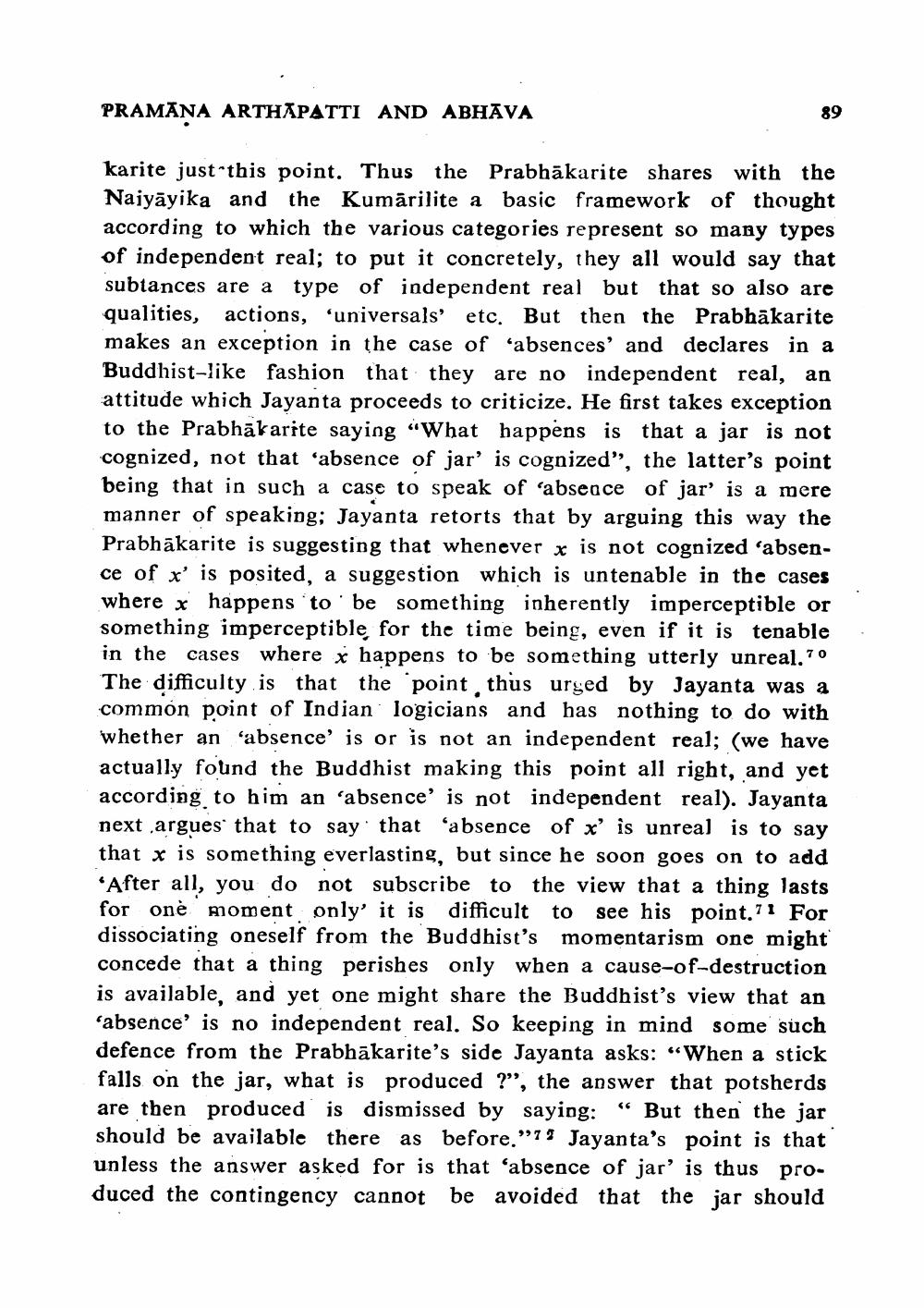________________
PRAMANA ARTHAPATTI AND ABHAVA
karite just this point. Thus the Prabhākarite shares with the Naiyāyika and the Kumārilite a basic framework of thought
rding to which the various categories represent so many types of independent real; to put it concretely, they all would say that subtances are a type of independent real but that so also are qualities, actions, 'universals' etc. But then the Prabhākarite makes an exception in the case of 'absences' and declares in a Buddhist-like fashion that they are no independent real, an attitude which Jayanta proceeds to criticize. He first takes exception to the Prabhākarite saying “What happens is that a jar is not cognized, not that 'absence of jar' is cognized", the latter's point being that in such a case to speak of 'absence of jar' is a mere manner of speaking; Jayanta retorts that by arguing this way the Prabhākarite is suggesting that whenever x is not cognized 'absence of x' is posited, a suggestion which is untenable in the cases where x happens to be something inherently imperceptible or something imperceptible for the time being, even if it is tenable in the cases where x happens to be something utterly u The difficulty is that the point thus urged by Jayanta was a common point of Indian logicians and has nothing to do with whether an 'absence' is or is not an independent real; (we have actually found the Buddhist making this point all right, and yet according to him an 'absence' is not independent real). Jayanta next argues that to say that 'absence of x' is unreal is to say that x is something everlasting, but since he soon goes on to add After all, you do not subscribe to the view that a thing lasts for one moment only' it is difficult to see his point.71 For dissociating oneself from the Buddhist's momentarism one might concede that a thing perishes only when a cause-of-destruction is available, and yet one might share the Buddhist's view that an 'absence' is no independent real. So keeping in mind some such defence from the Prabhākarite's side Jayanta asks: “When a stick falls on the jar, what is produced ?", the answer that potsherds are then produced is dismissed by saying: “ But then the jar should be available there as before.”71 Jayanta's point is that unless the answer asked for is that 'absence of jar' is thus produced the contingency cannot be avoided that the jar should




